Paris, the capital of France, is world renowned for its iconic landmarks, world-class museums, and picturesque streets lined with outdoor cafes and boutique shops.
The Eiffel Tower, Arc de Triomphe, Louvre, Notre Dame Cathedral, Seine River, Champs-Élysées, and hilly streets of Montmartre are some of Paris’ most famous sights, but you can also explore its historic neighborhoods, dine in an outdoor café, and day trip to Versailles. A visit to Paris is filled with unforgettable experiences.
Tim and I are frequent visitors to Paris. In this guide, we provide everything you need to know about how to plan a perfect trip to Paris, from the best things to do, where to eat, where to stay, and how to plan your time with lots of insider tips.
Join us as we uncover the best of Paris, from its must-see sights, enchanting neighborhoods, and top restaurants and hotels.
Bienvenue à Paris!
How to Plan A Trip to Paris
Here is a step-by-step guide to how to plan your trip to Paris. We will cover all of these steps later in this guide, but here is a quick overview.
1. Determine how many days you can spend in Paris.
2. What days of the week will you be in Paris? If your visit falls on a Monday or Tuesday, be aware that all of the museums won’t be open, so you will have to adjust your itinerary or skip one of these attractions.
3. Where else do you plan to go? If your trip to Paris is part of a bigger trip to Europe, don’t miss our 10 day itineraries that include other cities, such as London, Amsterdam, and Brussels. I also recommend taking a look at our France Travel Guide, which also has information about the Alsace Region, the French Riviera and Provence, and Chamonix.
4. Check hotel prices and availability. Make your hotel reservation. Refer to our article Where to Stay in Paris on Your First Visit for hotel and apartment recommendations.
5. Reserve tickets in advance. Some attraction tickets become available several months in advance, but some sites, like the Eiffel Tower, open their tickets up 30 days in advance. If you will be using the Paris Museum Pass, you will have to make time slot reservations in advance for a few sites, with the Louvre Museum being on this list.
6. Sign up for any tours you plan to take.
7. Make your dinner reservations. This is best done at least 1 to 2 weeks in advance, but for very popular restaurants, such as Le Jules Verne on the Eiffel Tower, these need to be reserved months in advance.
8. Enjoy your time in Paris!
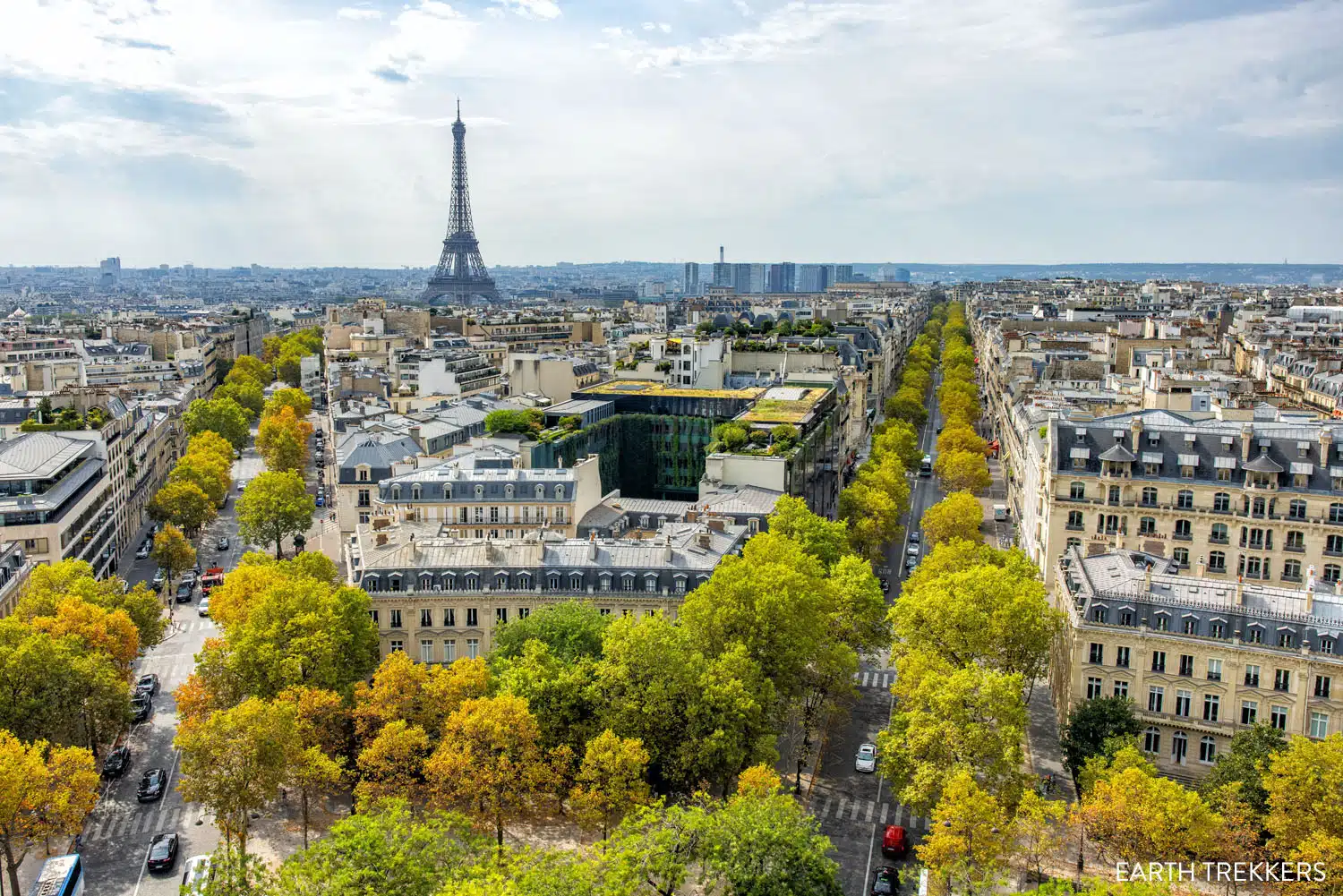
The view from the Arc de Triomphe
Paris Geography 101
The city center of Paris is bisected by the Seine River. The main sites in Paris are clustered on either side of this river.
The Right Bank (Rive Droite) refers to the area of Paris that is north of the Seine River. This is where you will find the Champs-Élysées, the Arc de Triomphe, the Louvre, the Marais, and Palais Garnier, just to name a few sites.
The Left Bank (Rive Gauche) refers to the area of Paris that is south of the Seine River. This is where you will find Musée d’Orsay, the Rodin Museum, and the Latin Quarter.
There are also two islands that sit within the Seine River, Île de la Cité and Île Saint-Louis. This is where you will find Notre Dame Cathedral and Sainte Chapelle.
Spiraling out from the Seine River are the 20 arrondissements of Paris. An arrondissement is a district. They are numbered 1 to 20, starting with 1 at the tip of Île de la Cité and spiraling out clockwise from here. The lower numbered arrondissements are located near the Seine River and the higher numbered arrondissements are located farther from the city center.
Finally, there are many different neighborhoods in Paris. Some of these neighborhoods are located in more than one arrondissement. For example, the Marais is located in the 3rd and 4th arrondissements. Other famous neighborhoods are Saint-Germain-de-Prés (6th arrondissement), Montmartre (18th arrondisement), and the Latin Quarter (5th arrondissement).
How to Use This Map: Click the icons on the map to get more information about each point of interest. To take this map with you, click the star next to the title of the map which adds it to your Google account. Next, within your Google Maps app, select ‘Saved’ and then select ‘Maps’. This map title will now appear in your list.
Best Time to Visit Paris
In general, spring and fall are the best times of the year to visit Paris. During this time, the weather is great for sightseeing and crowds tend to be lower than the busy summer months. But here is a breakdown by season of what you can expect in Paris:
WINTER: Paris is cold during the winter months, with average high’s ranging from 5 to 7°C (mid-40’s Fahrenheit) and the average low hovering just above freezing. Rainfall is slightly higher than most of the other seasons, with Paris getting about 8 days of rainfall per month in the winter. Skies tend to be overcast on a regular basis.
SPRING: The spring brings warmer temperatures and clearer skies. In early April, the average high temperature is still on the cooler side (about 16°C or 60°F). The average high in May is 19°C (66°F) but it can be much warmer than this, on unusually warm days. April is a beautiful month to visit Paris, when the trees begin getting leaves and flowers are in bloom. If your visit will coincide with Easter, don’t miss our post about what it is like to be in Paris during Easter.
SUMMER: Summers are warm with sunny skies. The average high is 24°C (76°F) but during a heat wave, it can get up to 38°C (100°F). This doesn’t happen every year, but it is a possibility. Crowds are at their highest during the summer.
FALL: In fall, the weather turns cooler and rain chances increase slightly over the summer months. October is another beautiful month to visit Paris, with cool weather and a hint of fall colors.
VERDICT: Our favorite months to visit Paris are April and October. The weather is wonderful and crowds aren’t at their peak levels.
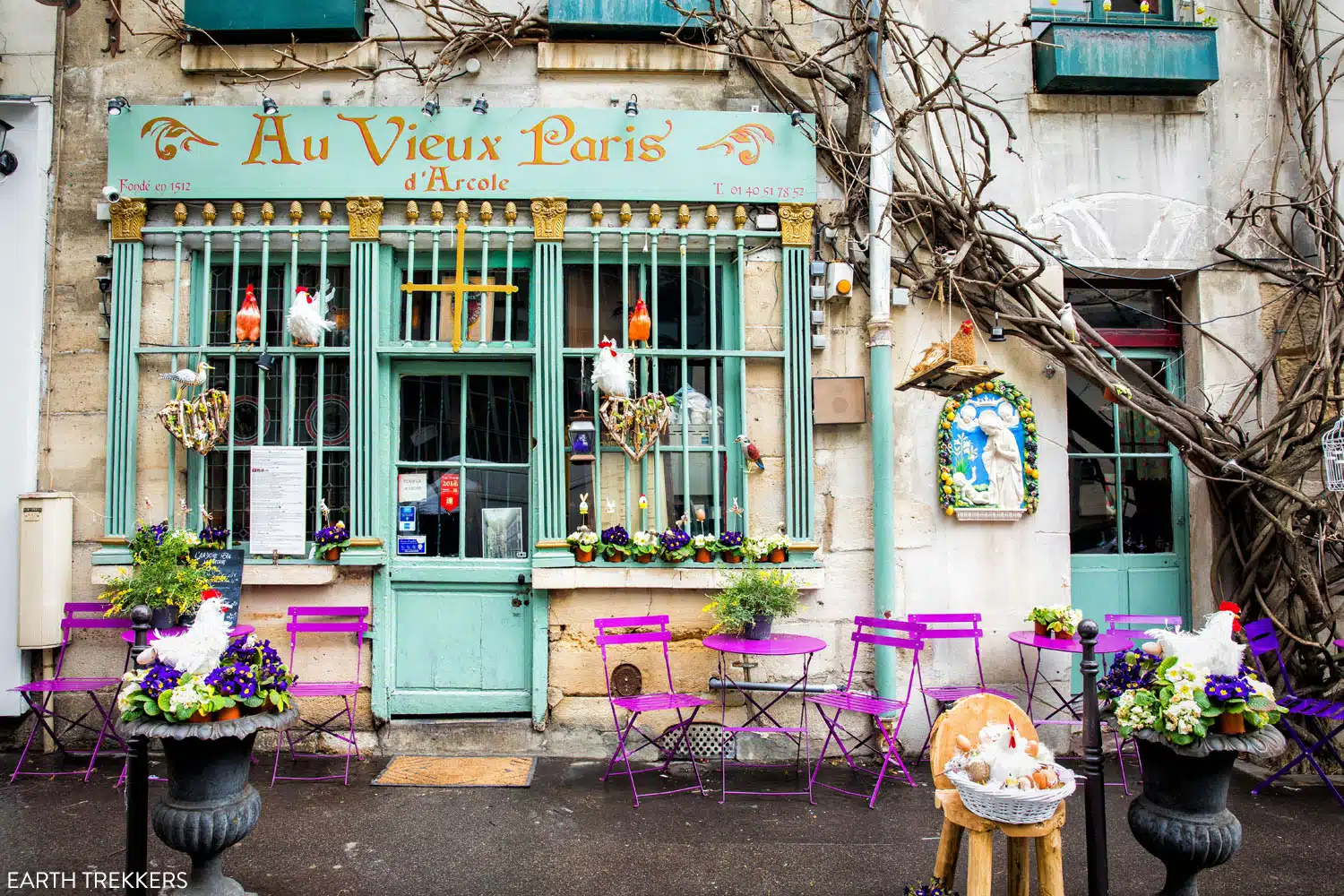
Best Things to Do in Paris
The list of things to do in Paris is very long. Take a look at our article Best Things to Do in Paris for the full, detailed list, but here are the top experiences if it’s your first time in Paris.
Eiffel Tower. The Eiffel Tower is Paris’ most recognizable landmarks. Ride the elevator or take the stairs to 1st, 2nd, and 3rd levels for panoramic views of Paris. Check out our article How to Visit the Eiffel Tower for helpful tips to have the best experience.
The Louvre. This is the world’s largest, most visited art museum. Home to the Mona Lisa, Venus de Milo, Egyptian and Mesopotamian artifacts, sculptures carved by Michelangelo, and more (much more!), this is not to be missed. In our How to Visit the Louvre guide, we list walking tours, from a quick, efficient 1 hour tour of the must-see sights to longer tours that take you deeper into the Louvre.
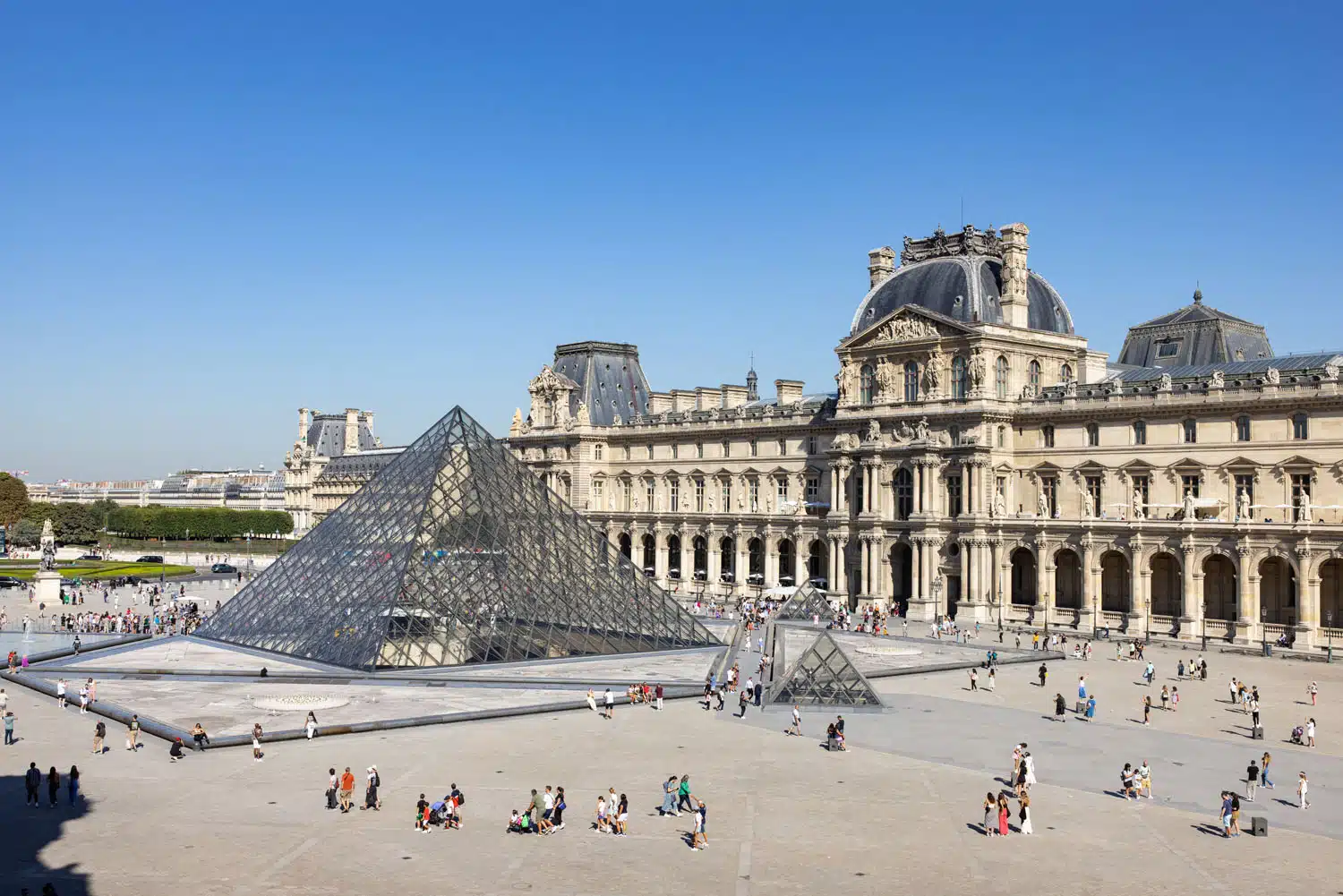
The Louvre
Arc de Triomphe. Sitting on a massive roundabout, at the top of the Champs-Élysées, the Arc de Triomphe is another important Parisian landmark. The view from the top of the Arc is one of the best in the city.
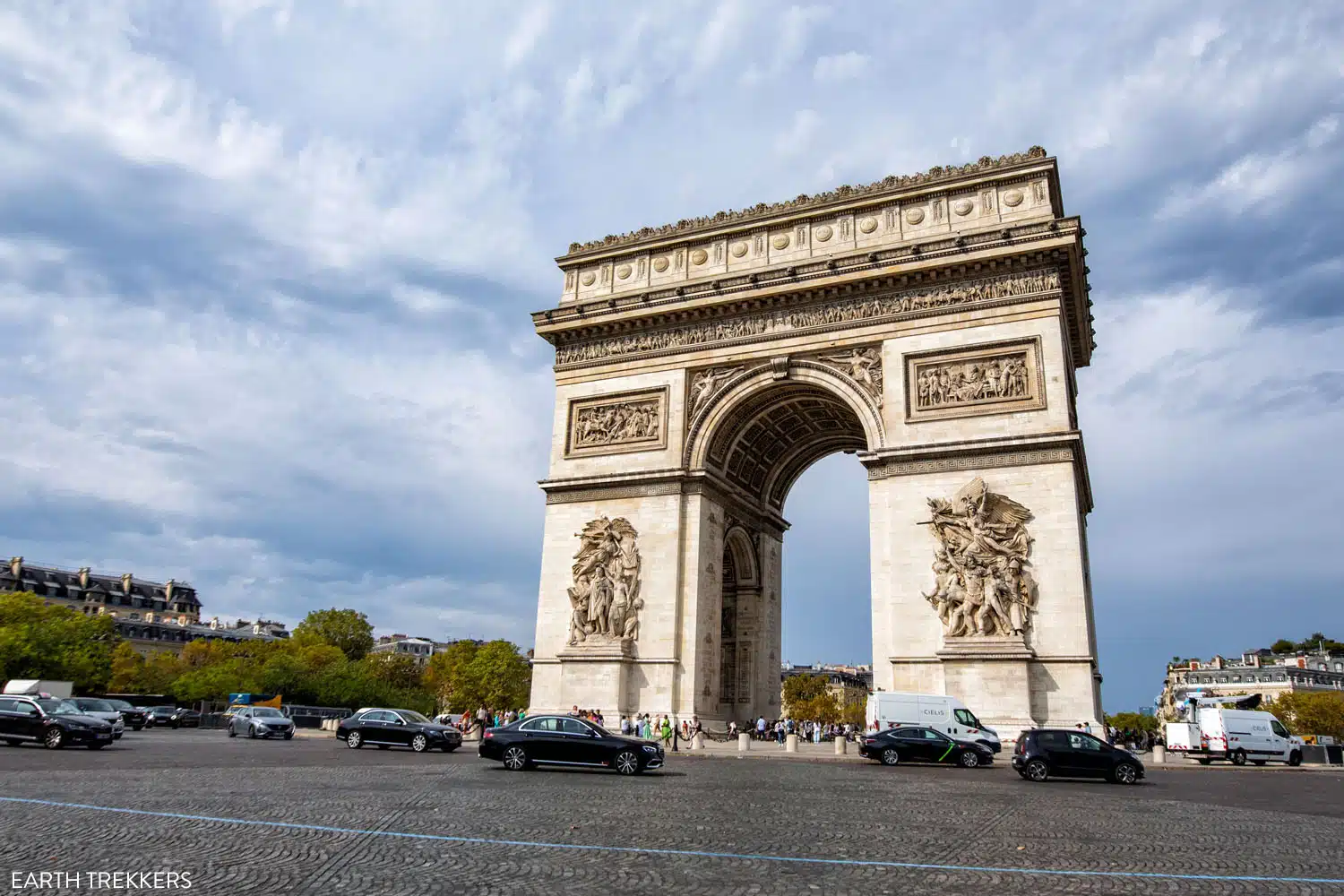
Arc de Triomphe
Notre Dame Cathedral. This is one of the oldest and grandest cathedrals in the world. It was severely damaged in 2019 from a fire but reopened at the end of 2024.
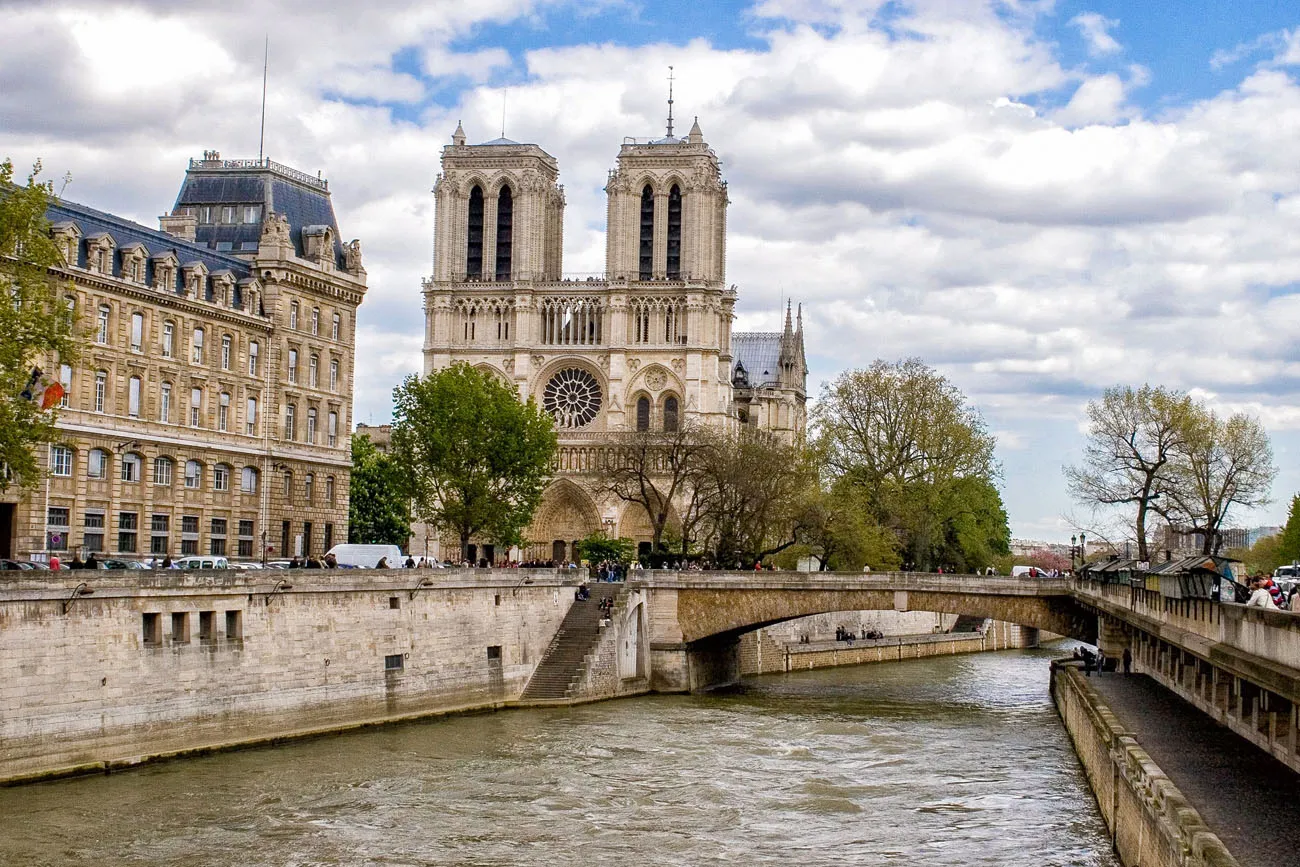
Notre Dame
Montmartre. Wander the maze of hilly streets, have your portrait drawn at Place du Tertre, and have a drink at one of many cafes that spill out onto the streets here.
Sacre-Coeur Basilica. The Sacre-Coeur Basilica sits atop the highest hill in Paris. Join the crowds on the steps and watch the sunset. You also have the option to climb the 300 steps to the top of the dome for an even better view.
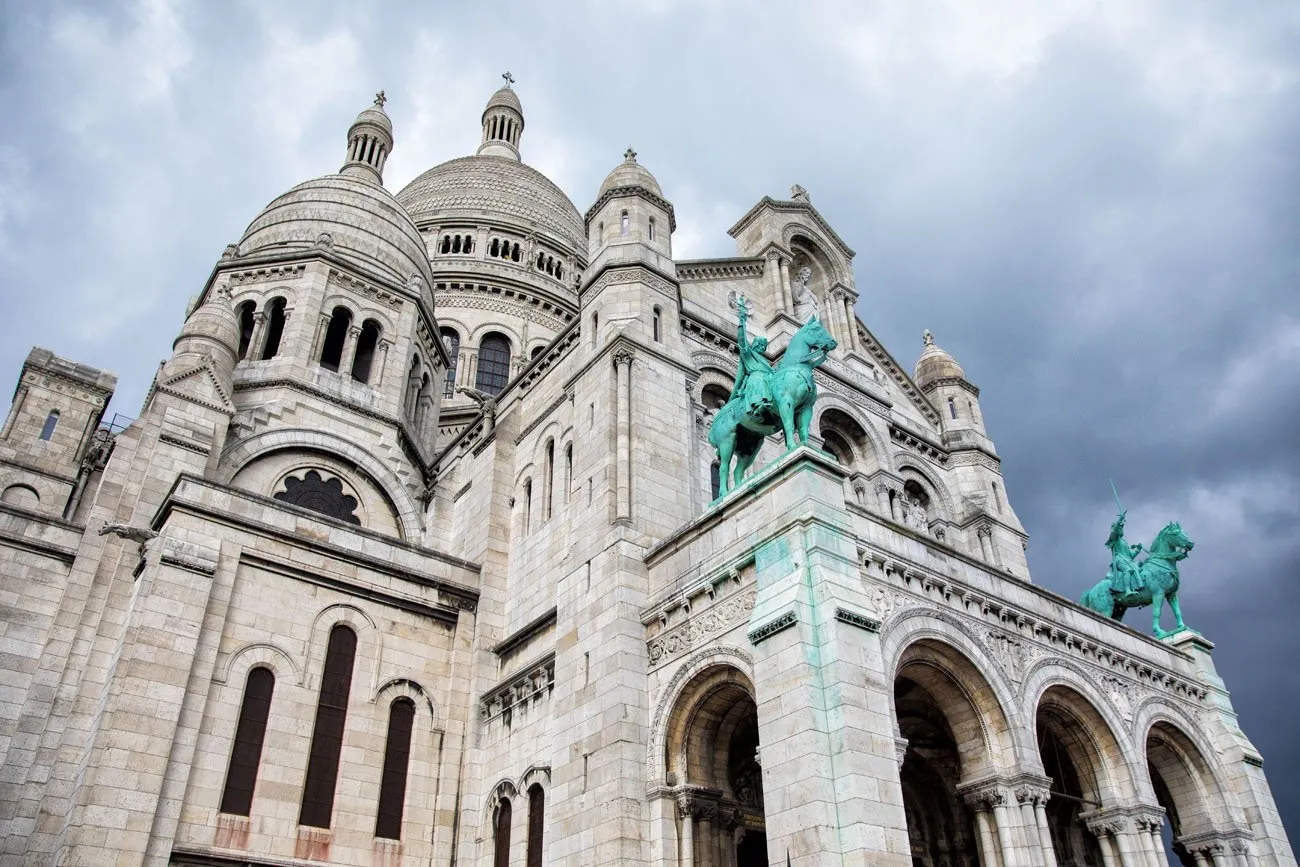
Sacre Coeur
Dine at a street café. Throughout the city, cafés spill out onto the city streets. Grab a table and have lunch or a glass of wine, the perfect way to take a break from sightseeing.
Stroll the Champs-Élysées. This famous street runs from Place de la Concorde to the Arc de Triomphe.
Musée d’Orsay. Musée d’Orsay houses the largest collection of Impressionist art in the world inside of Gare d’Orsay, an old train station.
Versailles. This opulent palace was the summer home for royalty and for a short period of time, was the seat of the government. Learn how to plan your day trip in our guide How to Visit Versailles.
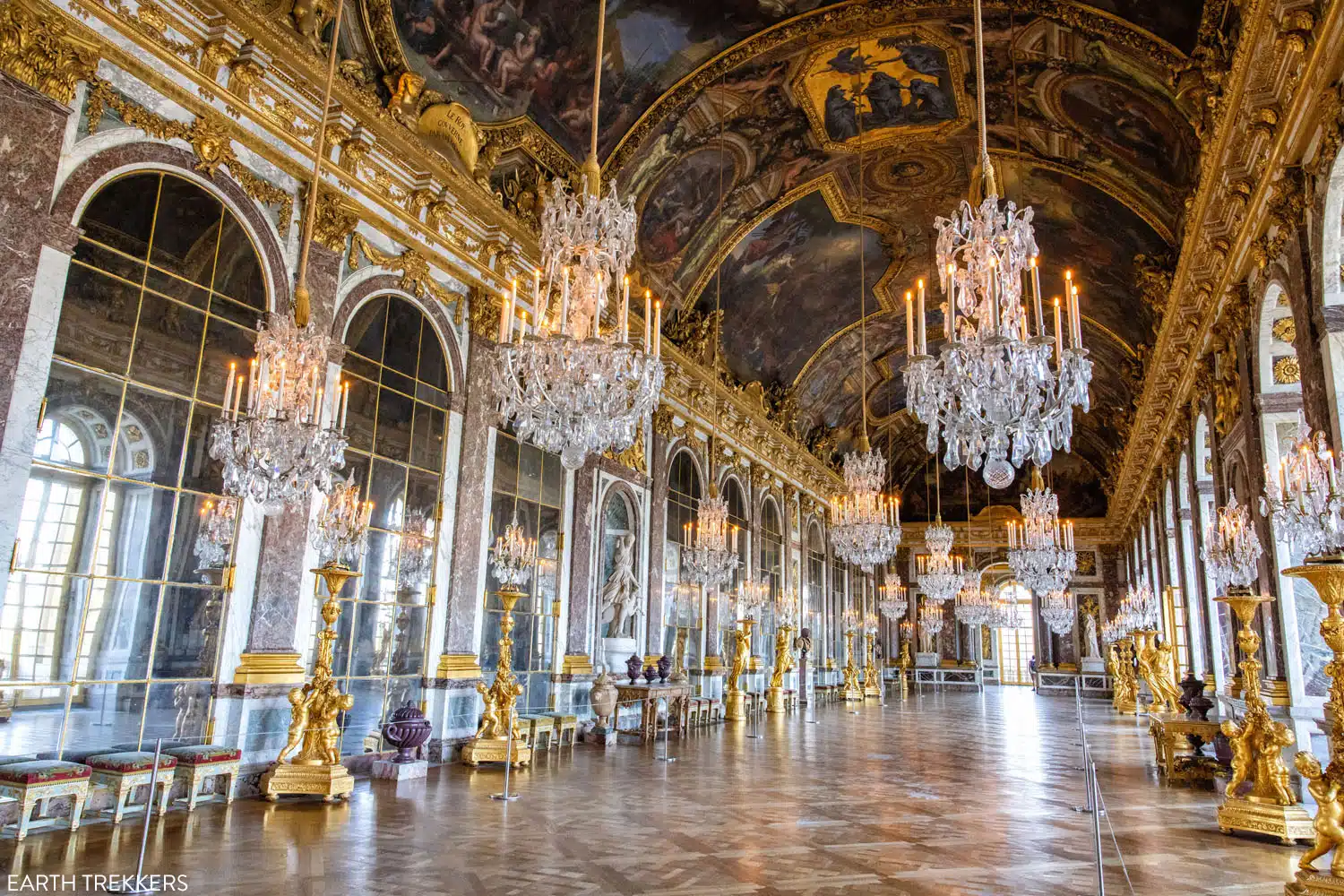
Hall of Mirrors, Versailles
Pompidou Centre. The Pompidou Centre is the largest modern art museum in Europe. It has an interesting design, with all of its plumbing and pipes located on the exterior of the museum, color-coded in vibrant colors. It’s definitely a unique sight to see.
Seine River. Go for a scenic walk along the Seine River, photographing Notre Dame Cathedral, Île de la Cité, and the historic bridges that cross the river. You also have an option to take a cruise, from a short 1-hour scenic cruise to sunset dinner cruises.
The Catacombs. Descend under the streets of Paris and tour the labyrinth of tunnels lined with human bones. In the 18th century, cemeteries around Paris were cleared and the bones were moved to these underground tunnels. Now, this is the final resting place of six million Parisians.
Paris Neighborhoods. Spend some time visiting Paris’ historic neighborhoods, such as the Marais, Saint-Germain-des-Prés, and Montmartre.
Museum Closings in Paris
The major museums in Paris are not open 7 days a week. This is important to know as you plan your itinerary. Mondays and Tuesdays are the days when many museums in Paris close, so ideally, plan your visit for Wednesday through Sunday.
Paris Museums closed on Monday:
- Musée d’Orsay
- Musee Rodin
- Versailles
Paris Museums closed on Tuesday:
- Louvre
- Musée l’Orangerie
- Pompidou Centre
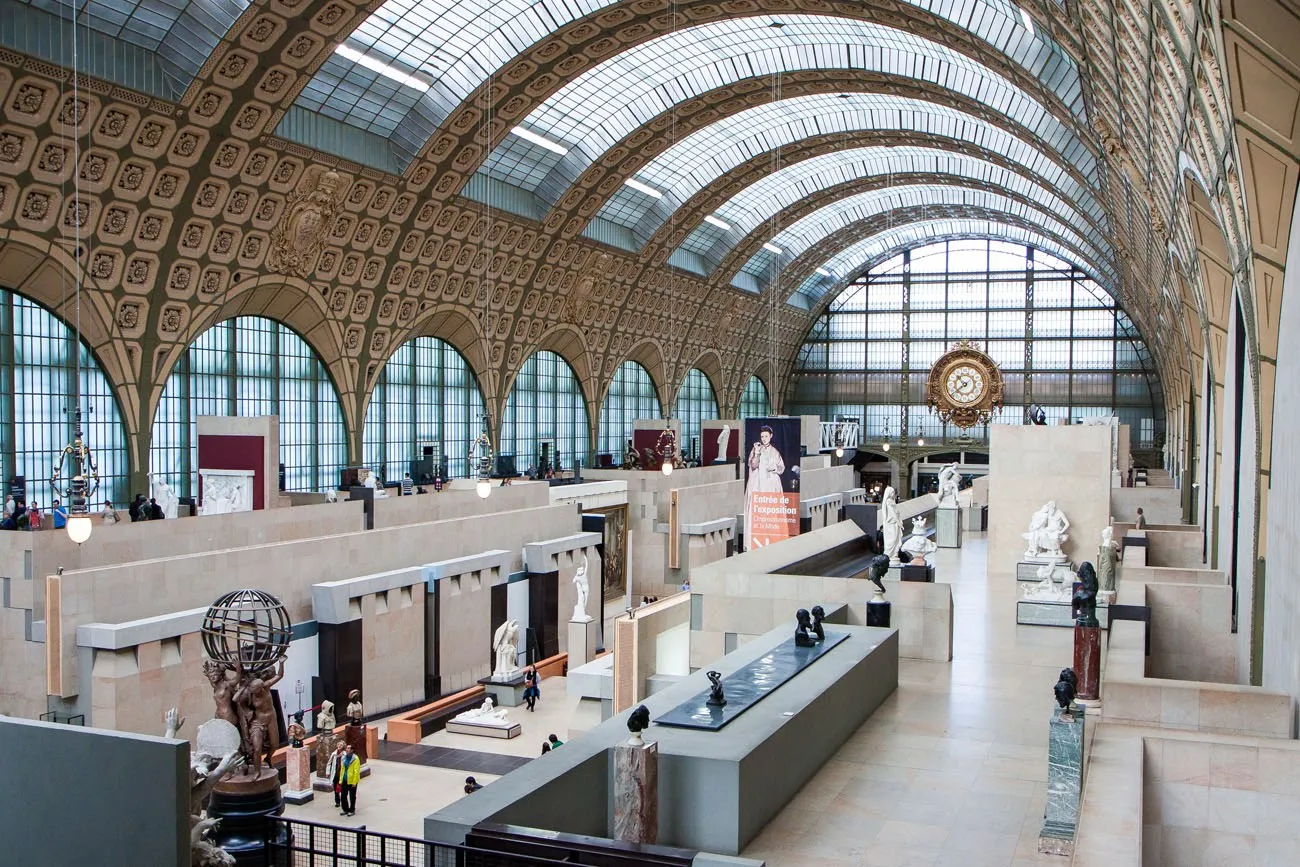
Musée D’Orsay
How Much Time Do You Need in Paris?
Ideally, plan on spending at least three days in Paris. This gives you just enough time to visit the highlights, explore a few neighborhoods, dine at a few restaurants, and day trip to Versailles. If you have three days, take a look at our 3 Days in Paris itinerary.
3 Days in Paris: The Perfect Itinerary for Your First Visit
Detailed 3 day Paris itinerary with maps, walking routes, and what reservations you will need to make in advance.With 2 days in Paris, you can see the main highlights in two very busy days. It will be a whirlwind of a visit and booking your entrance tickets in advance will be key in maximizing your time, but what an amazing 2 days it will be!
2 Days in Paris Itinerary: How to Plan an Amazing Trip to Paris
Everything you need to know to plan your 2 day visit to Paris.With four or more days in Paris, you can spend more time exploring its neighborhoods, taking food tours or day trips to nearby sites, and slow down a little bit, so you can savor your time in Paris, rather than racing through it.
With one day in Paris, take your pick from a few key sights in Paris (the Eiffel Tower, Arc de Triomphe, Notre Dame Cathedral, and a museum or two top the list for most first-time visitors). Purchase your tickets online in advance (the Paris Museum Pass does not have a one-day option) to avoid spending your very valuable time waiting in line.
How to Get Around Paris
The best ways to get around Paris are on foot and by metro.
Paris is a large city, so it is almost impossible to walk everywhere, unless you want to log a lot of steps for the day.
The Metro
The metro is the best way to cover longer distances in Paris. The metro system is fast, efficient, and budget friendly. We use it very frequently to get around Paris.
You can download an app on your phone that has a Paris metro map. You input where you are and where you want to go and the app gives you the route. We have used the Paris Metro Map and Routes app available in the Apple Store.
On our most recent trip, we used Google Maps to get around. It was great at giving us a walking route to the metro station, the metro route, and the walking route to our final destination. Plus, it’s free (but you will need data on your phone). For example, if we were standing in Champ de Mars next to the Eiffel Tower and needed to get to the Louvre, Google gave us the walking route to the closest metro station, the metro route, and walking directions to the Louvre entrance.
The RER
The RER is a train line that connects Paris to sites in the suburbs, Charles de Gaulle Airport, and Versailles. This is a cheap, handy way to get to places outside of the city center, rather than taking a taxi or Uber. You can purchase a ticket for this specific journey, or if you will be using a travel card (more on that soon), you’ll need to make sure you get one that includes all zones of travel you will be accessing.
Buses, Taxis & Ride Share Apps
By bus, you can get around by public bus or on a hop-on hop-off bus tour of Paris. We have only used the bus one time, to get out to Pere Lechaise Cemetery, because the metro is usually the more convenient mode of public transportation.
You can also use taxis and a ride share app, like Uber, to get around Paris. These are slower than the metro, and pricier.
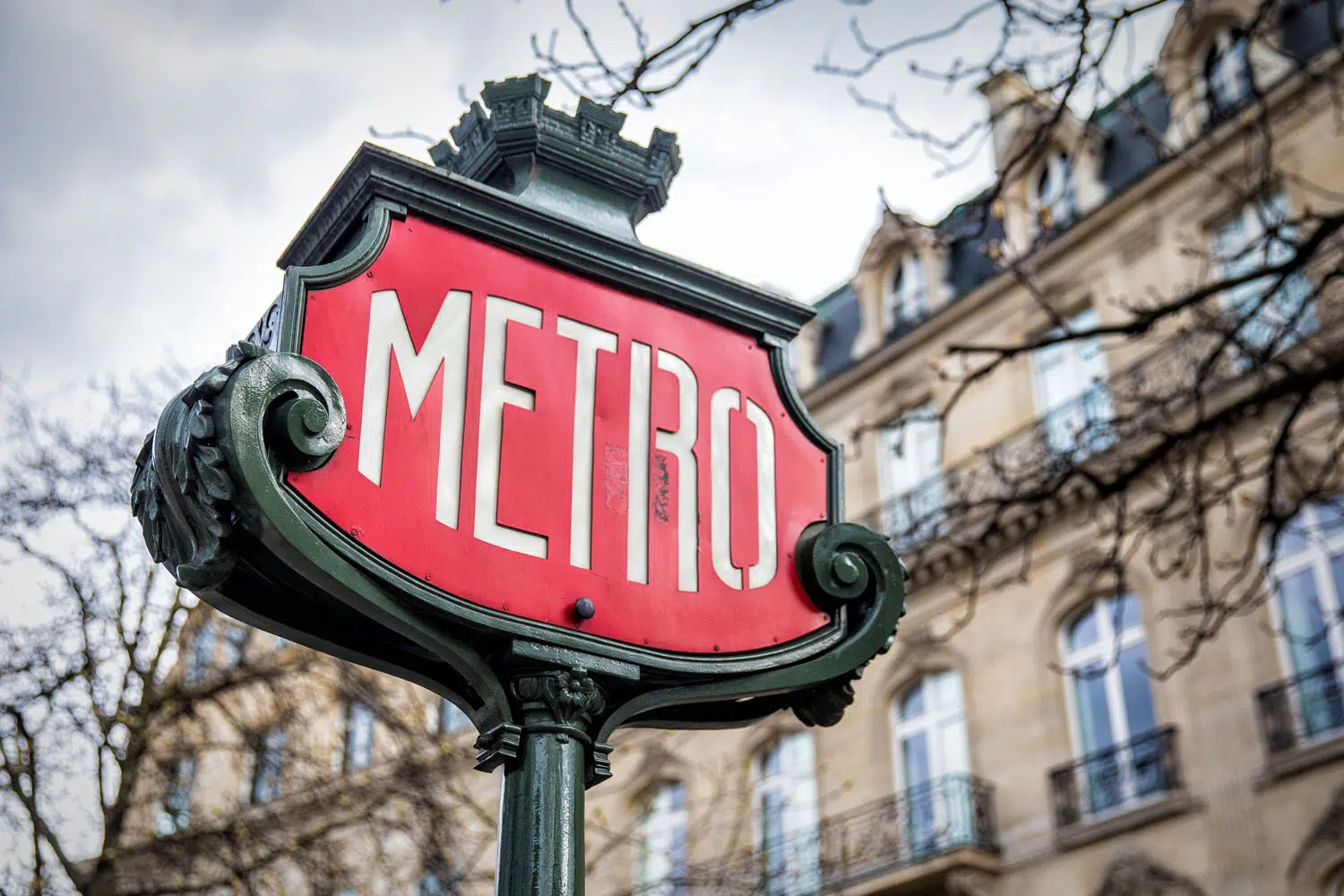
Paris Travel Cards
The T+ Ticket is a single journey ticket that gives you one trip on the metro, bus, RER, or Montmartre funicular. They can be purchased individually or in a pack of 10 at metro and RER stations or on the public buses (not the hop-on hop-off buses). A single ticket costs €2.50.
The Paris Visite Pass gives you unlimited rides on the metro, bus, RER, trams, and Montmarte funicular within a specific window of time.
The Paris Visite pass can be purchased for 1, 2, 3, or 5 days. It includes all 5 zones, including the Paris city center, Charles de Gualle airport, Orly Airport, the Palace of Versailles, and Disneyland.
A 1-day pass costs €29.90, a 2-day pass costs €44.45, and a 3-day pass costs €62.30.
The Paris Visite pass is sold in metro and RER stations. Learn more and get updated pricing here.
The Paris Navigo Pass is a travel card that is used by locals in Paris. If you will be in Paris for several days, it might be cheaper than the Paris Visite pass. The Navigo pass gives you unlimited rides on the metro, bus, RER, trams, and Montmartre funicular. It costs €5 to purchase the card and then there is a weekly fare (€31.60 for zones 1-5).
The period of validity for the Paris Navigo Pass is sold in weeks (valid from Monday through Sunday). If your visit crosses over this period (for example, if you will be in Paris from Sunday through Tuesday) you will need two of these weekly fares, so the prices are similar.
To purchase the pass, go to any metro or RER station. You will need your passport to purchase the pass. Learn more and get pricing on the official website.
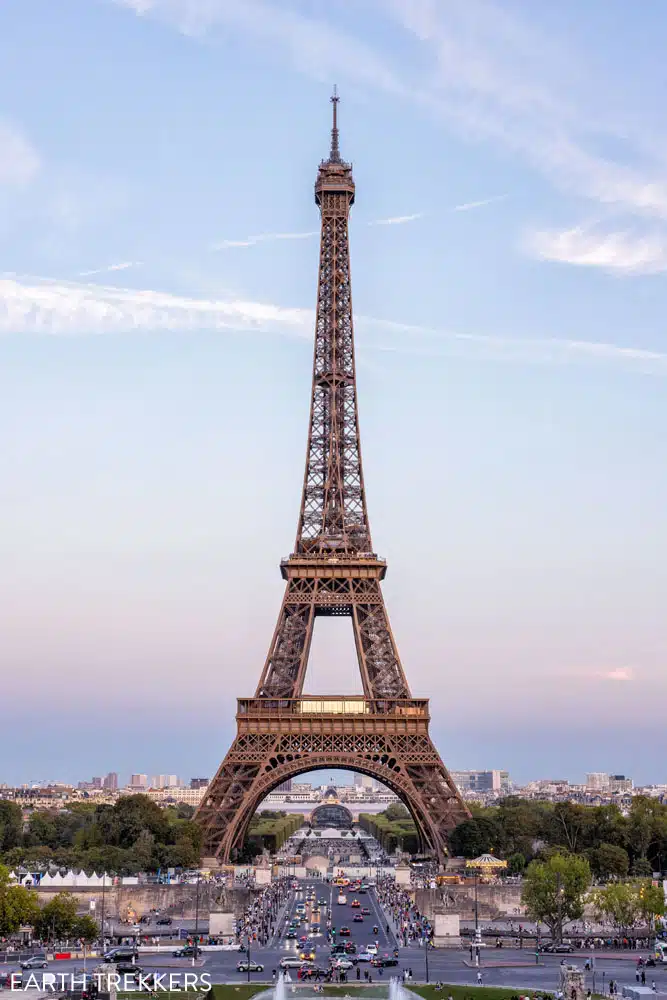
Eiffel Tower
The Paris Museum Pass
The Paris Museum Pass covers your entrance fee into many of the major attractions in Paris and it allows you to skip the ticket lines. Just be aware that it does not guarantee getting into every attraction without a line. During busy times, you still may have to queue for security.
If you follow our 2-day and 3-day Paris itineraries, there are savings with the Museum Pass, so we recommend getting it. You can order it ahead of time or purchase it at your first attraction (this is what we do).
Learn more about the Paris Museum Pass, including pricing and the attractions it covers, on the official website.
You may also hear about something called the Paris Pass. This pass is pricier than the Museum Pass and includes a lot of extra experiences that we don’t list in our itineraries (such as the Paris Aquarium, a hop-on hop-off bus tour, and a walking tour), so we don’t recommend purchasing this pass. However, if some of these activities interest you, then it is worth taking a look at what the Paris Pass has to offer.
Our Recommendation
Purchase the Museum Pass (there are different durations, choose the one that coincides with the number of days you will be in Paris) and a Paris Visite Pass.
The Paris Visite Pass and the Navigo Pass covers your transportation on the metro, RER, bus, and the Montmartre funicular. You can purchase this pass at the ticket booths in the metro stations (we purchase ours just before our first ride on the metro). Learn more here.
What to Eat in Paris
From street food crepes to macarons to freshly baked bread, there is a long list of foods to try in Paris. Get the full list in our Paris Food Guide, with recommended restaurants and cafes where you can try these delicacies.
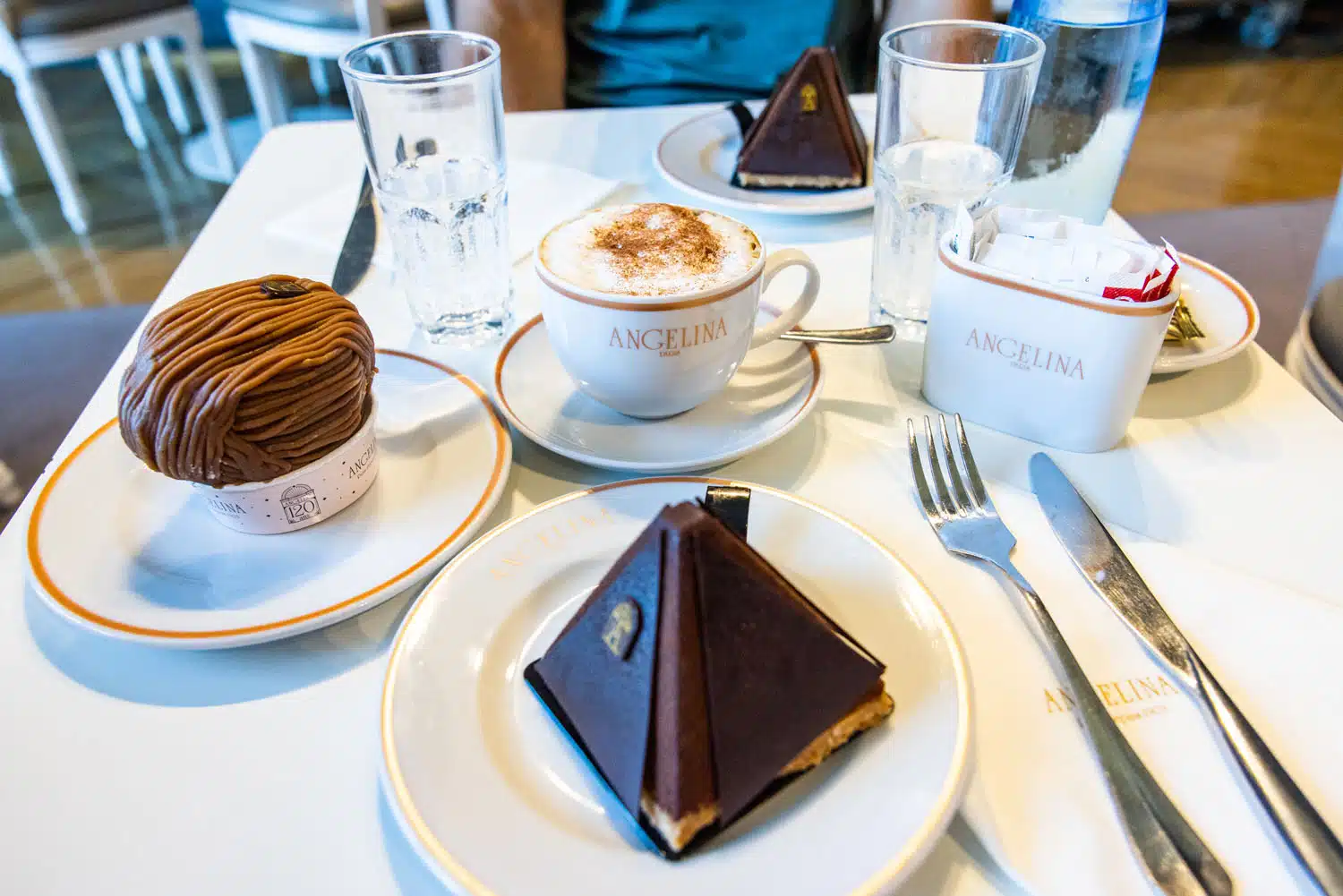
Dining at Angelina in the Louvre
Where to Eat in Paris
Our Paris Food Guide has a list of recommended restaurants, but here are a few of our favorites.
Angelina. This famous tea room serves pastries, tea, and the best hot chocolate in Paris. There are locations on Rue de Rivoli, in the Louvre, and at Versailles.
Ladurée. This is Paris’ most famous macaron shop, with locations throughout the city center.
Les Deux Magots. This is one of Paris’ most famous cafes. Ernest Hemingway, Pablo Picasso, Julia Child, James Joyce, Jean-Paul Sartre, and Simone de Beauvoir all dined here.
A Michelin-Starred Restaurant. It may come as no surprise that Paris has a long list of 1, 2, and 3-starred Michelin restaurants. Plenitude, Benoit, Restaurant le Meurice Alain Ducasse, and L’Oiseau Blanc are some of our top picks.
Berthillon. Located on Île Saint-Louis, next to Île de la Cité, not far from Notre Dame Cathedral, this is the place to go for the best ice cream in Paris.
And if you want to dine with a view, check out our next list of recommended restaurants.
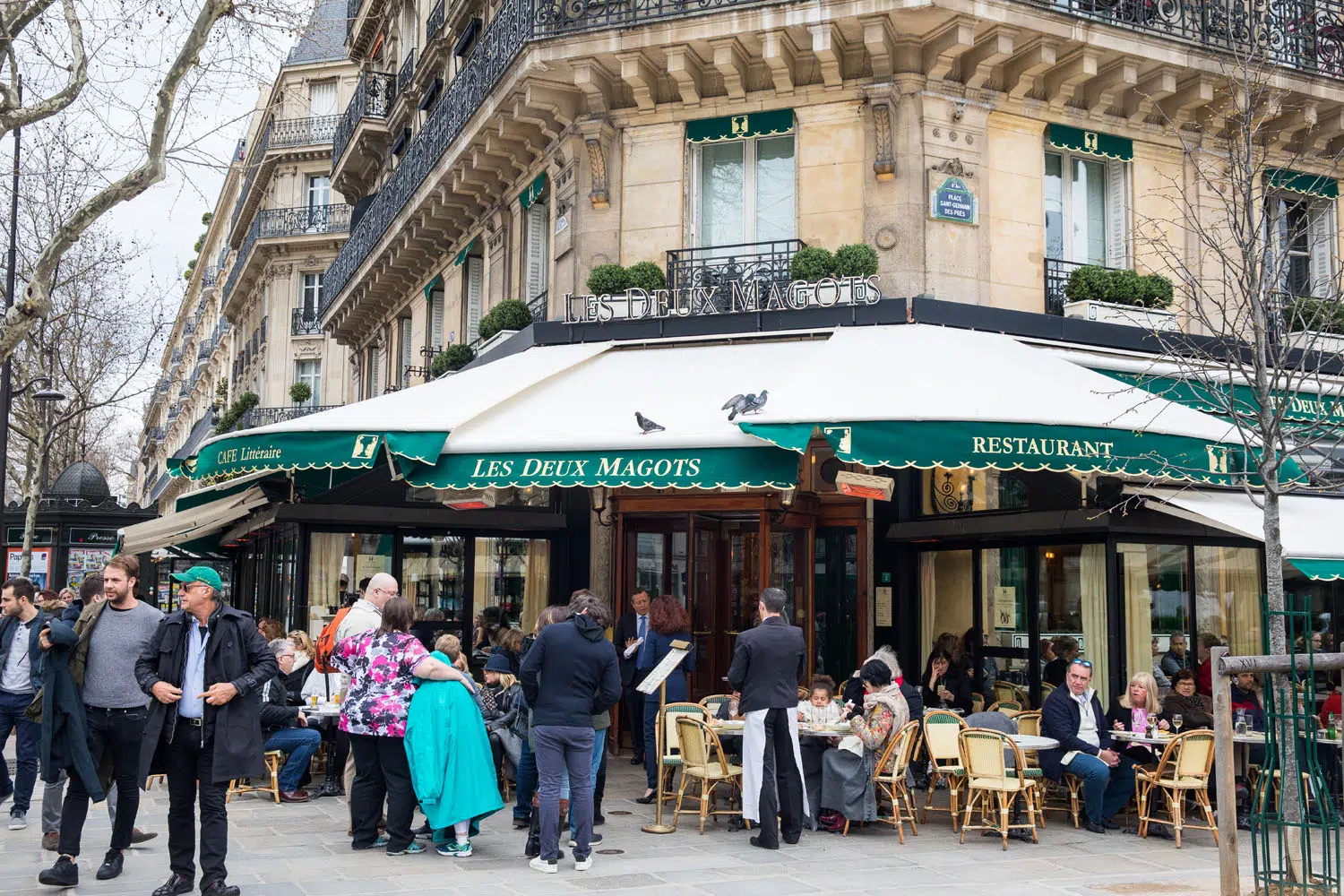
Les Deux Magots
Rooftop Bars & Restaurants in Paris
Imagine watching the sun set over the city of Paris, with a glass of wine or cocktail in hand, from the vantage point of a rooftop bar. Whether you want to sip on a cocktail or enjoy dinner with a view of the city skyline, you have quite a few rooftop bars in Paris to choose from.
You can see a longer list in our guide to the Rooftop Bars and Restaurants in Paris, but here are a few of our favorites.
Les Ombres. Les Ombres gets our vote for best view of the Eiffel Tower from a restaurant. This panoramic terrace sits on top of Musée du quai Branly, just a few steps from the Seine and a few blocks from the Eiffel Tower. The restaurant is enclosed in glass giving every table a prime view of the Eiffel Tower.
Restaurants on the Eiffel Tower. There are two restaurants on the Eiffel Tower. Madame Brasserie is an upscale restaurant on the first floor of the Eiffel Tower with views of the Trocadero. Le Jules Verne is a Michelin-starred restaurant on the second floor of the Eiffel Tower. The views of the Paris are amazing from this spot, especially at sunset.
Sequoia Rooftop. With its laid-back atmosphere, wonderful view of the Eiffel Tower, great cocktails, and healthy snacks, this is one of our favorite rooftop bars in Paris.
Le Jardin du Raphael. A bit fancier than Sequoia Rooftop, Le Jardin du Raphael has a gardenlike setting and views of both the Eiffel Tower and Arc de Triomphe. There is a rooftop bar and restaurant here.
Langosteria. Located on the 7th floor of the Cheval Blanc hotel, overlooking Pont Neuf and the Seine River, is a fantastic, upscale Italian restaurant. The views from the restaurant are some of the best in Paris, as you can see Notre Dame, the Eiffel Tower, and much of the city skyline.
Bar Sur le Toit. Sitting near Montmarte, this historic Art Deco hotel is home to a restaurant and a rooftop bar. We visited both of them and had a wonderful experience. From the rooftop bar, you get a great view of Sacre Coeur and the Paris city skyline.
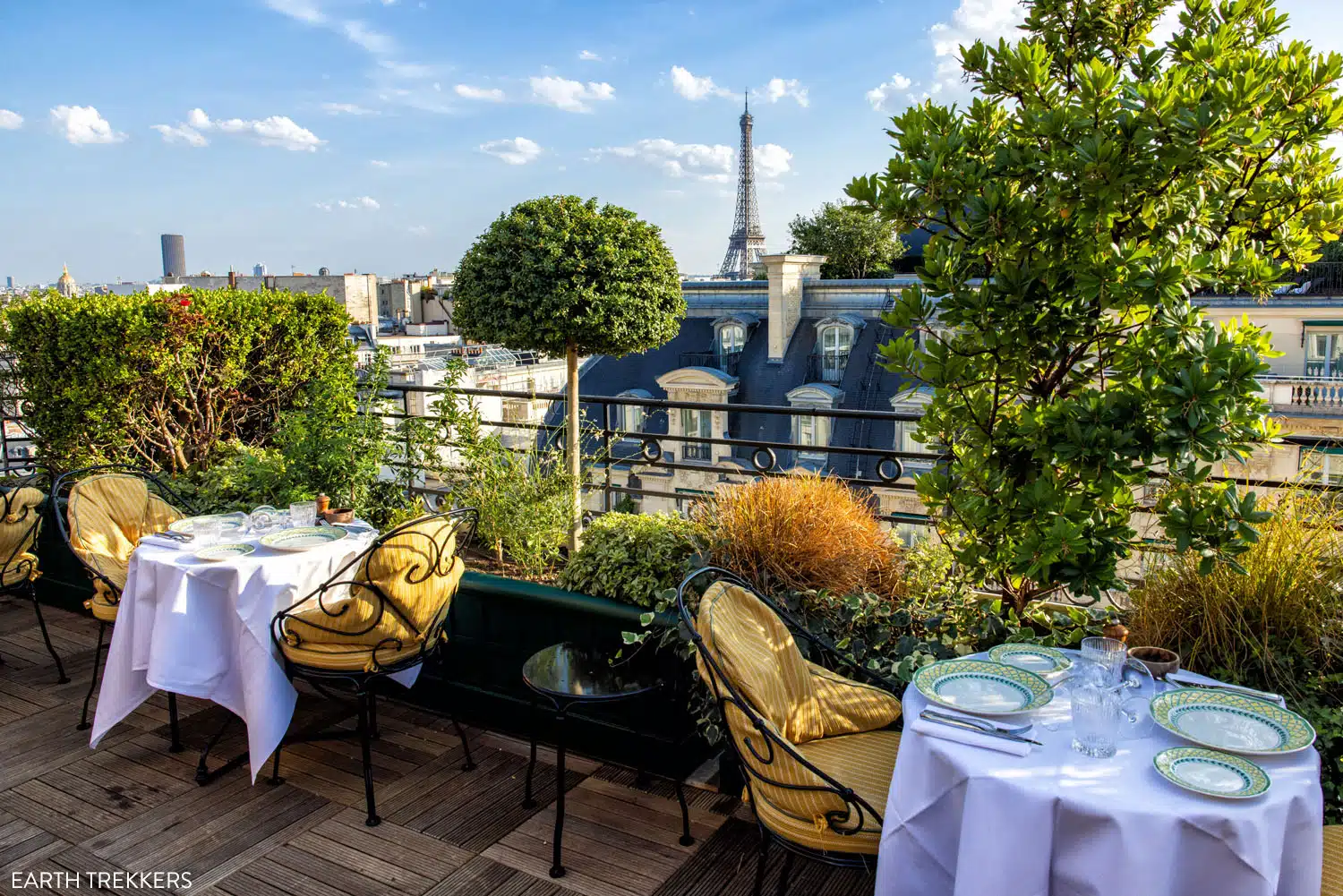
Le Jardin du Raphael
Where to Stay in Paris
The best place to stay is within the city center, to save you travel time on the metro. There are many different neighborhoods to choose from.
For neighborhood recommendations and the top hotels in each of them, take a look at our guide Where to stay in Paris on Your First Visit.
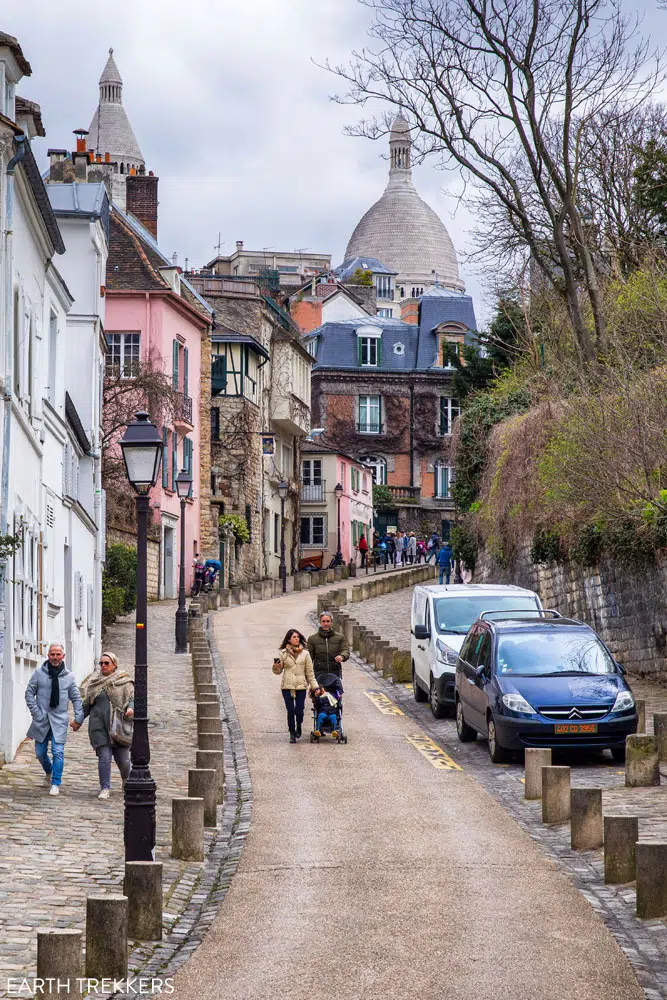
Montmartre
Tours of Paris
Joining a tour can help save you time waiting in line, get tickets to a site that may have sold out in advance, or allow you to experience Paris in a unique way, such as a private photo shoot. Here are some of the best tours in Paris.
Tours of Paris
Is Paris Worth It?
Absolutely! This is one of our favorite cities in the world. In one city you can tour a long list of world class museums, enjoy the view from the Eiffel Tower and Arc de Triomphe, and dine at some of the best street cafes and restaurants in Europe.
If you have any questions about how to plan your trip to Paris, let us know in the comment section below. We’d be happy to help!
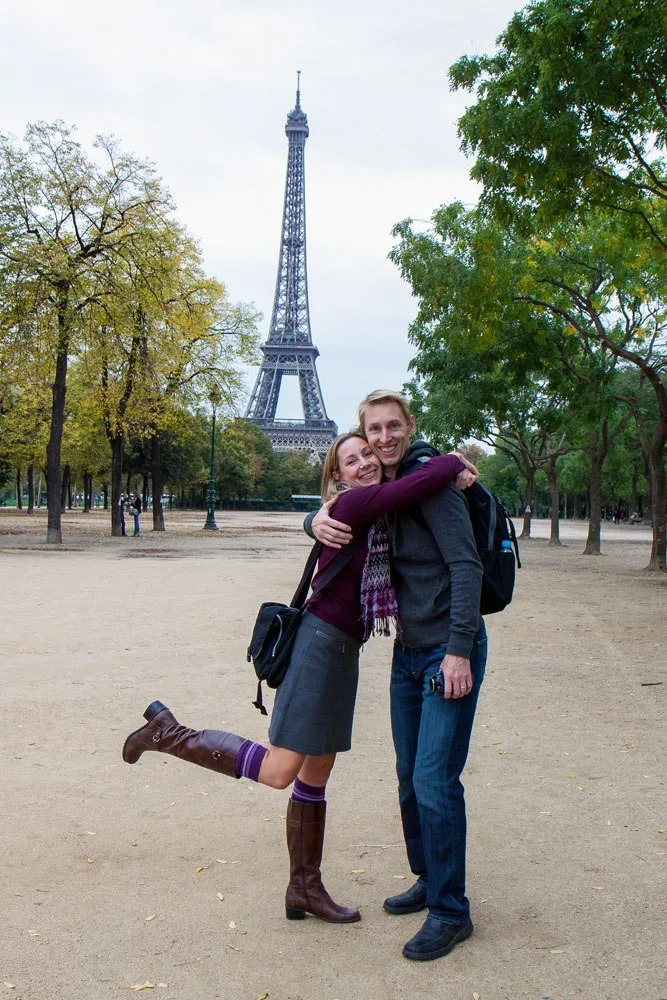
More Information for Your Trip to Paris
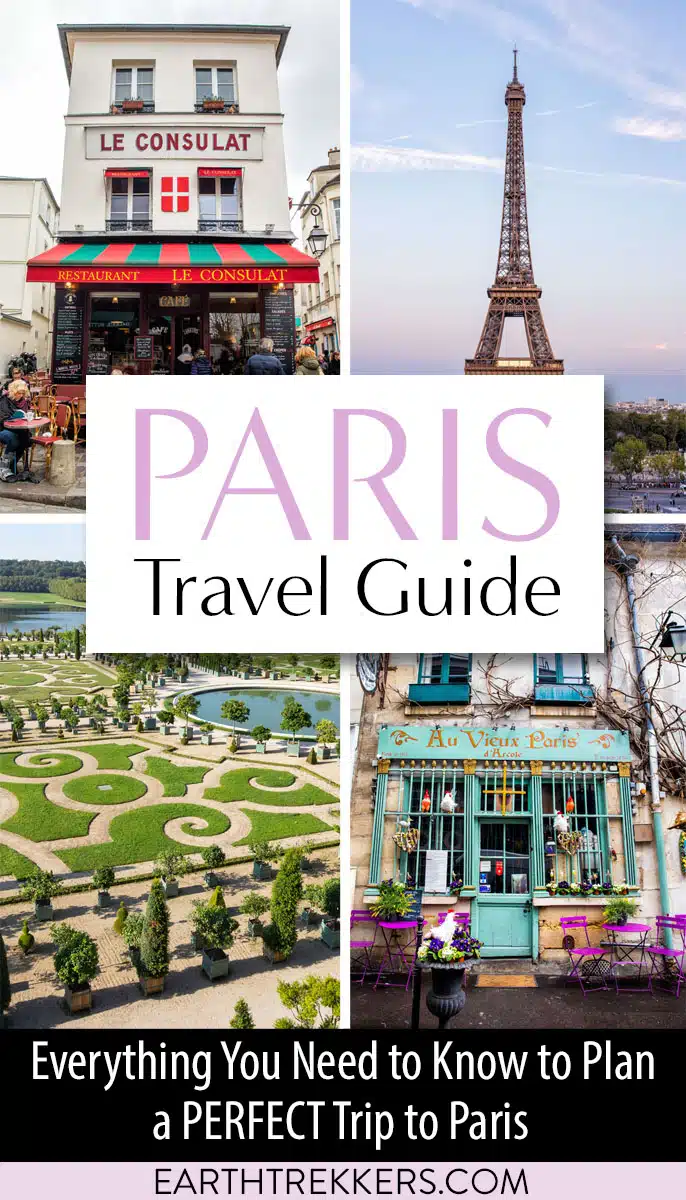
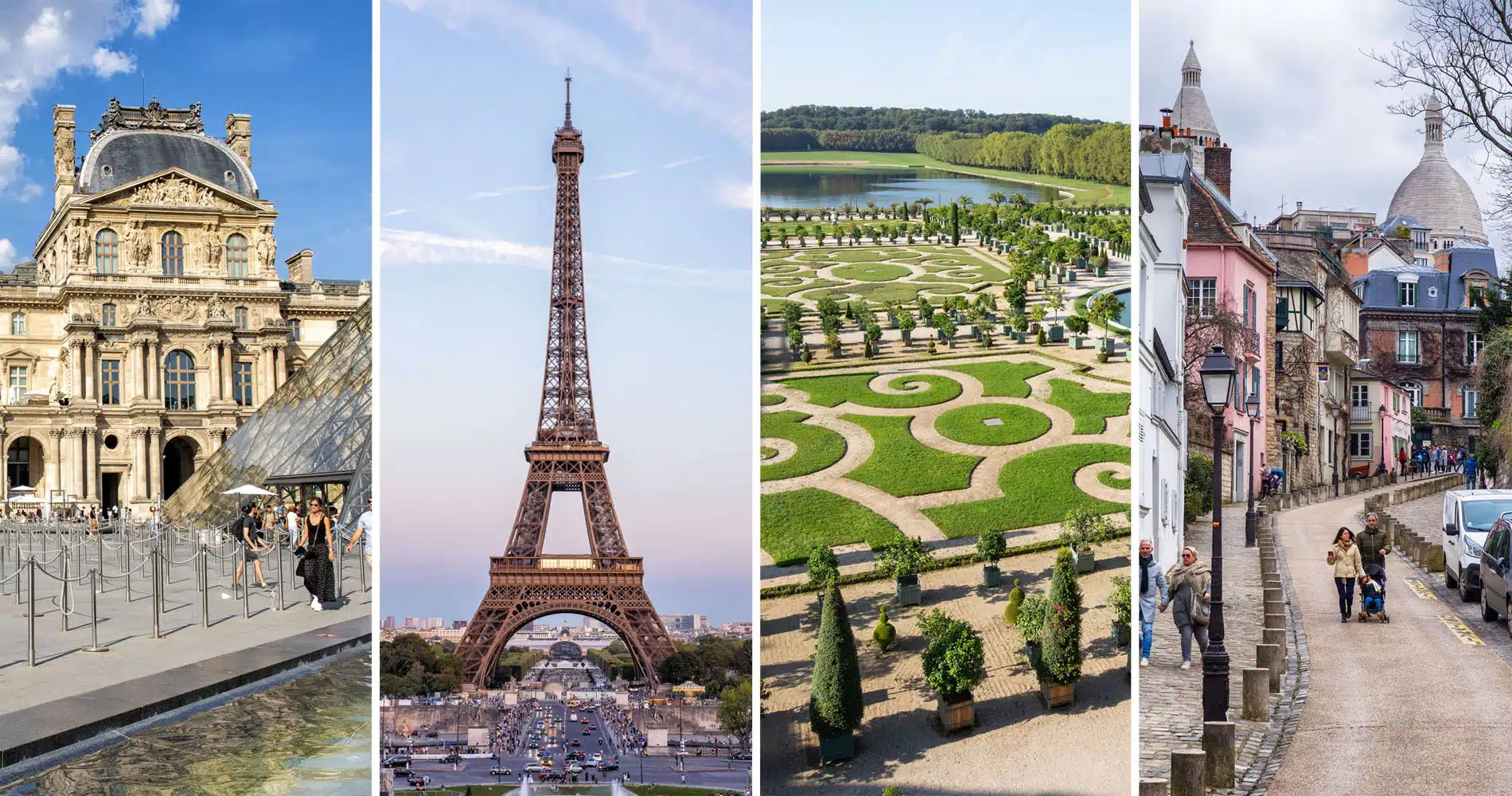

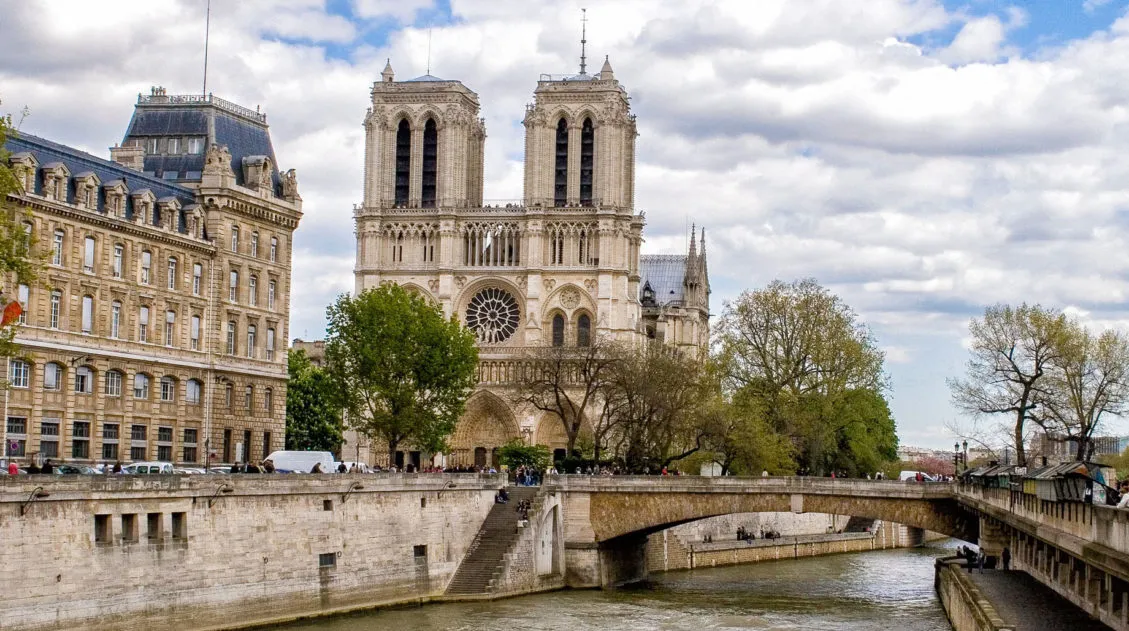
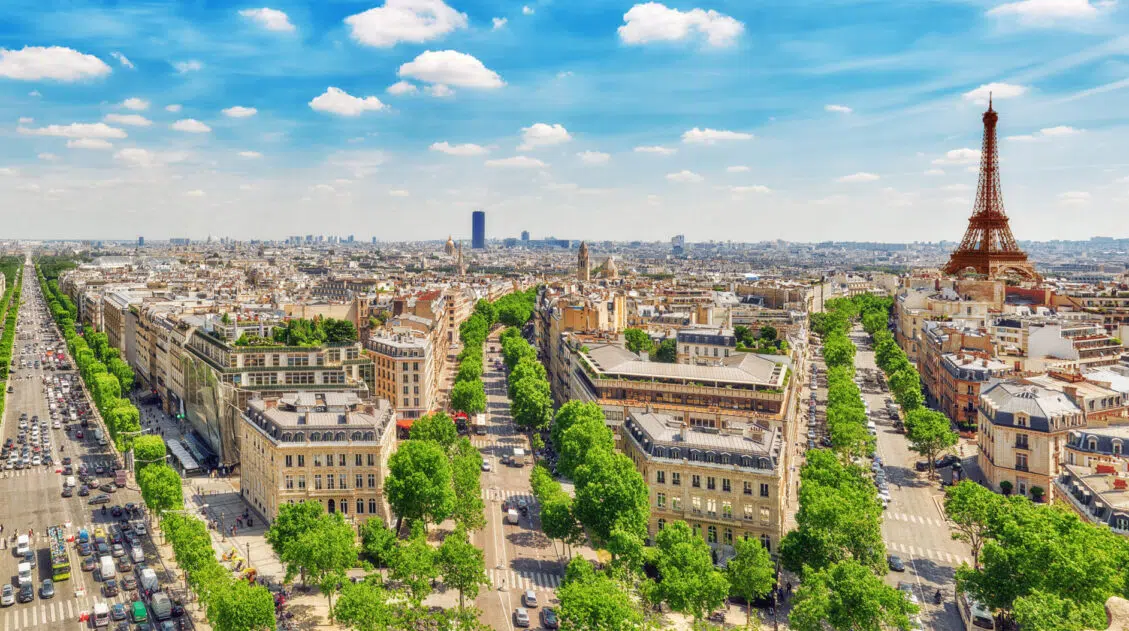
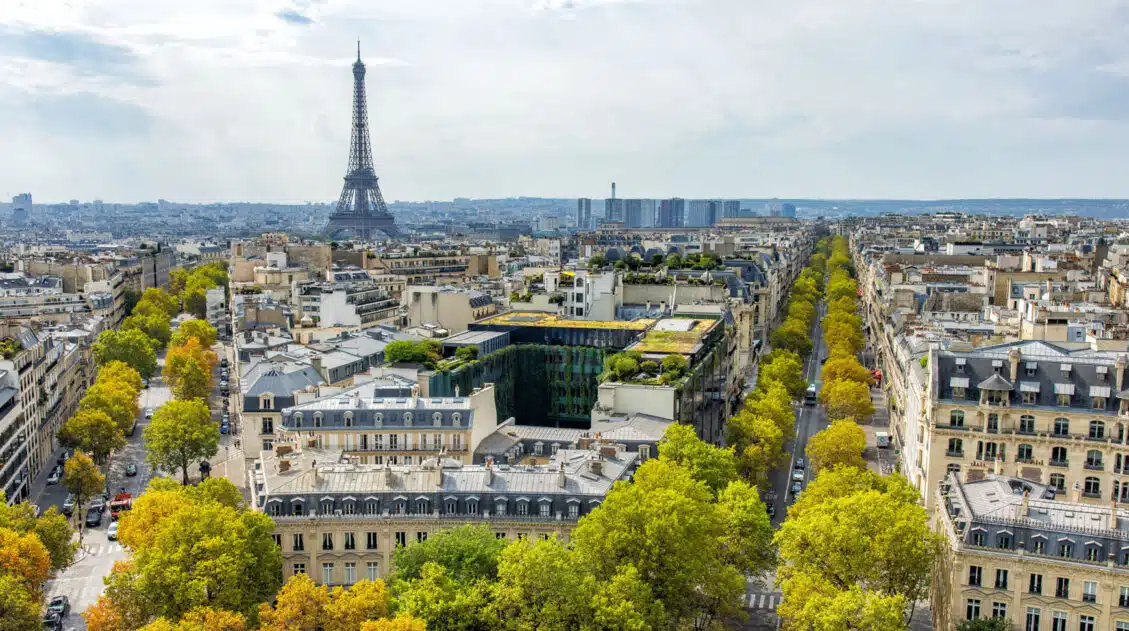
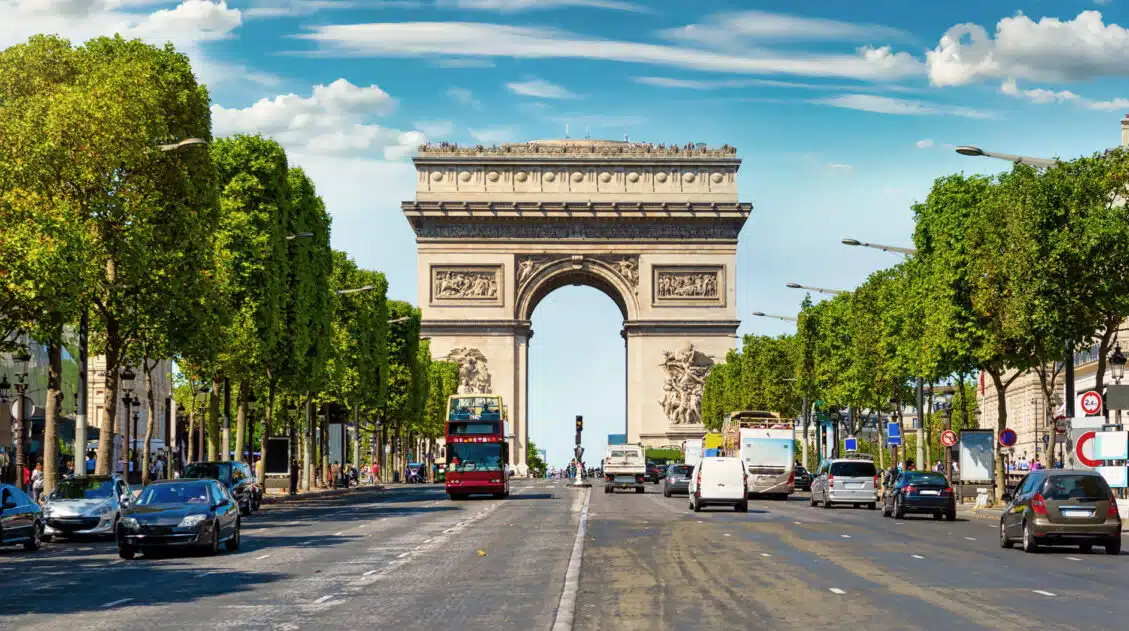
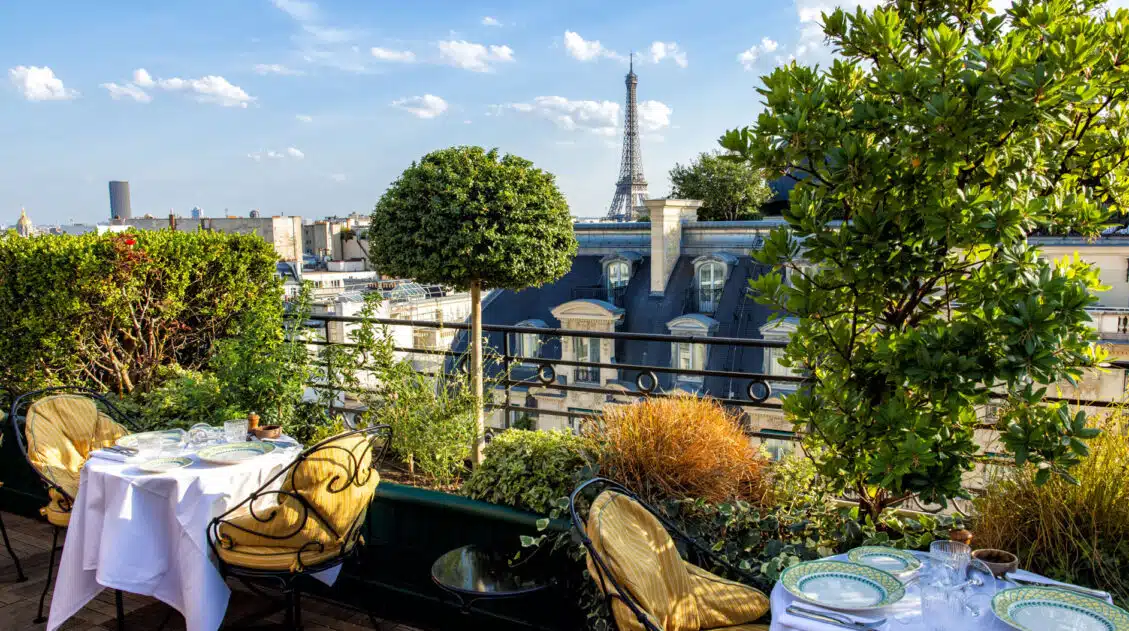
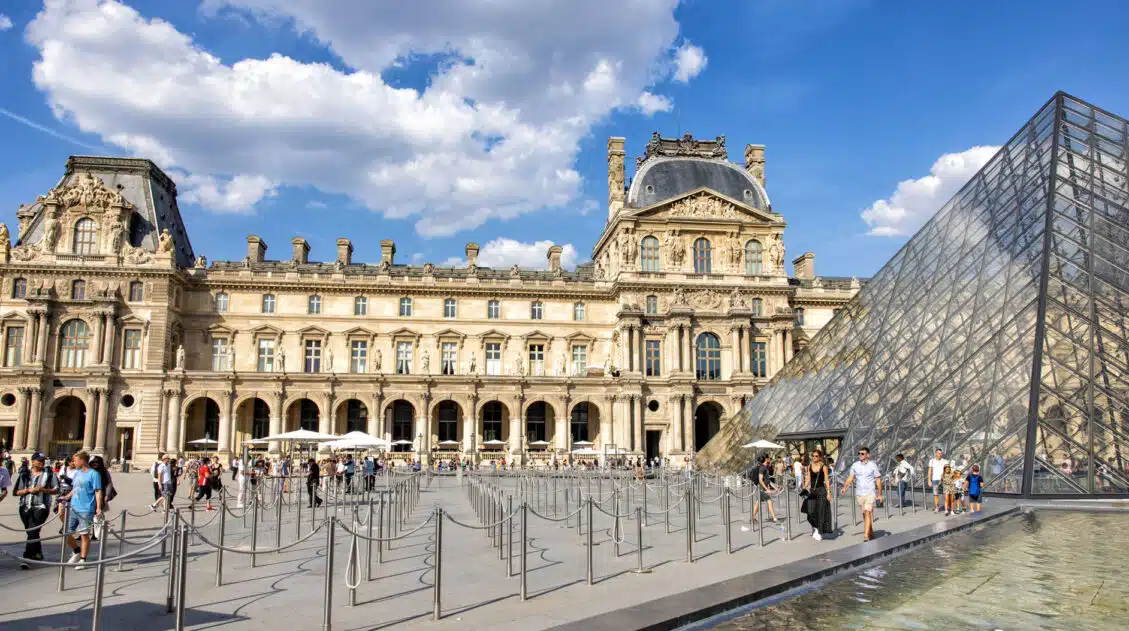
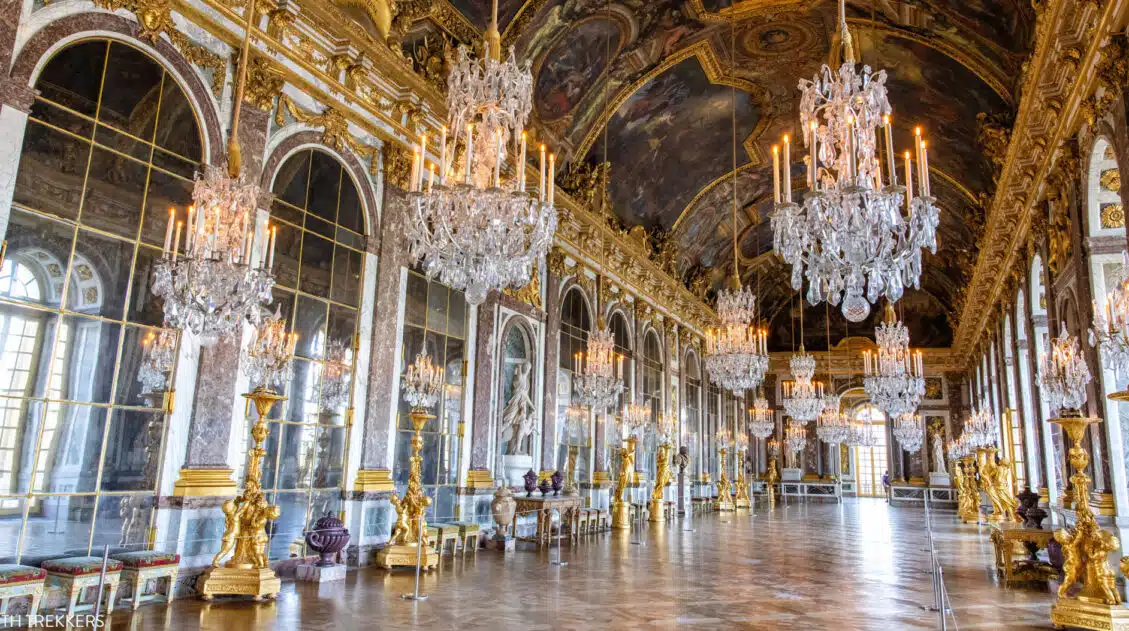
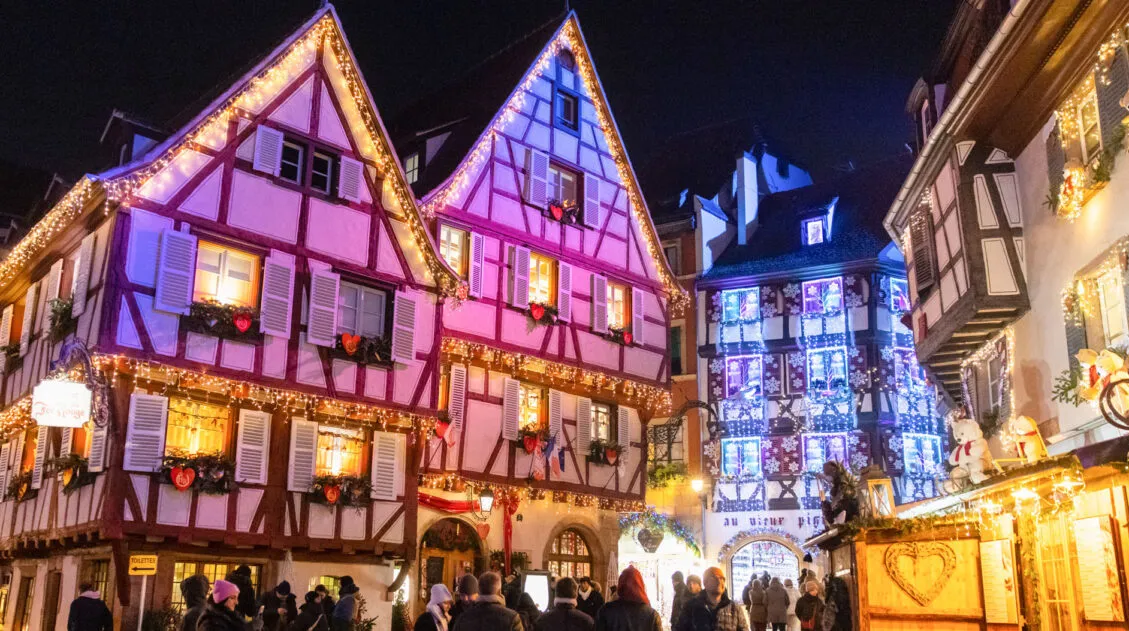
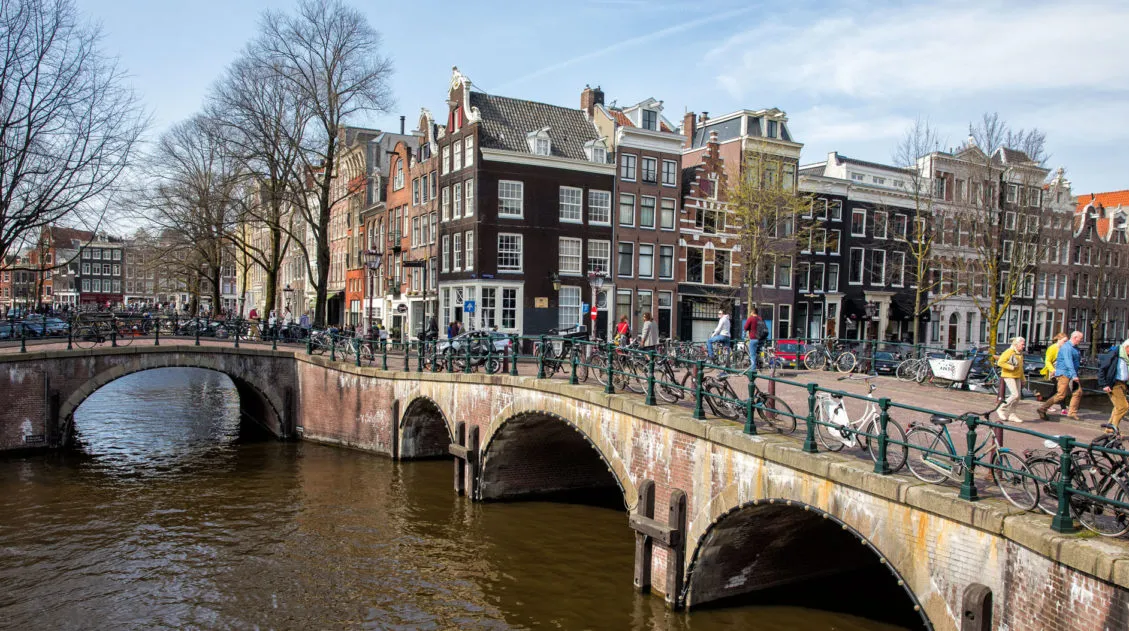
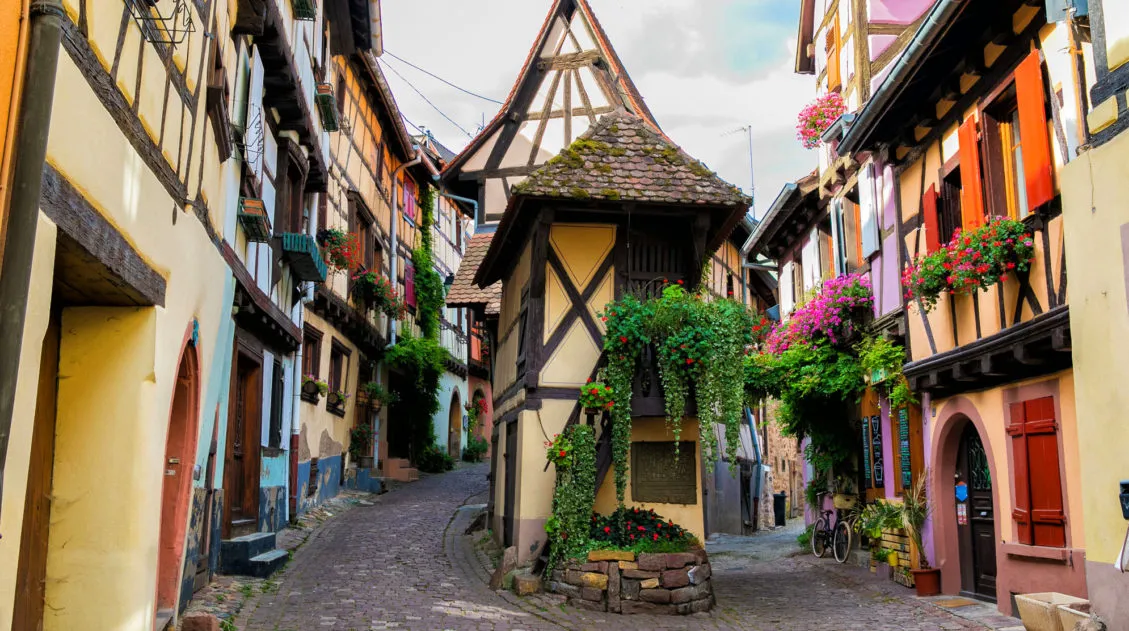
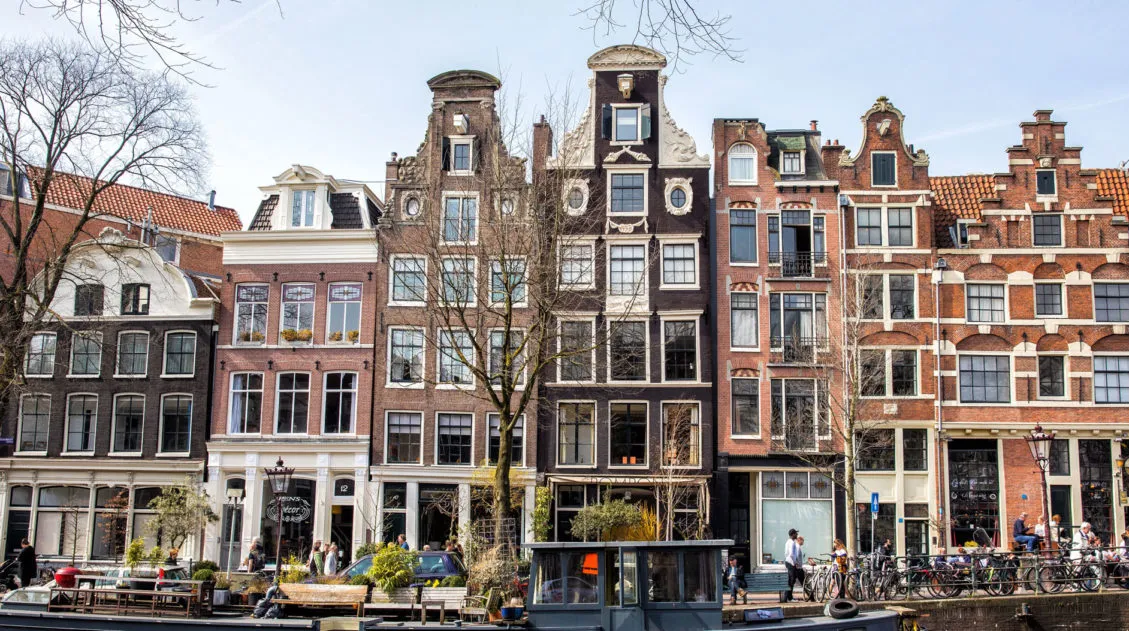
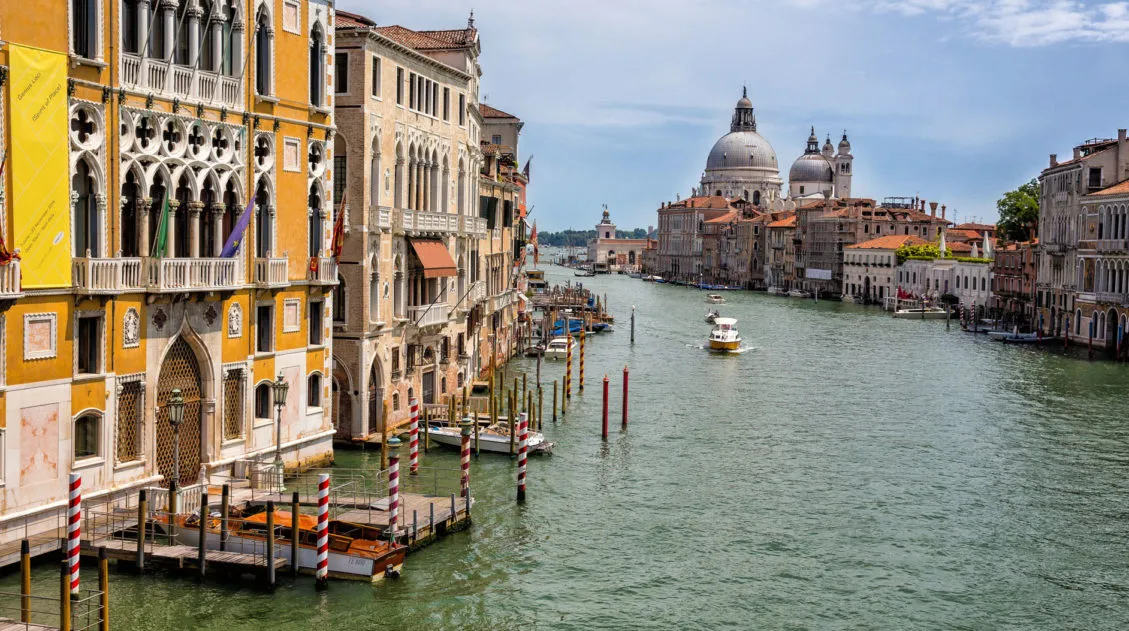
Comments 12